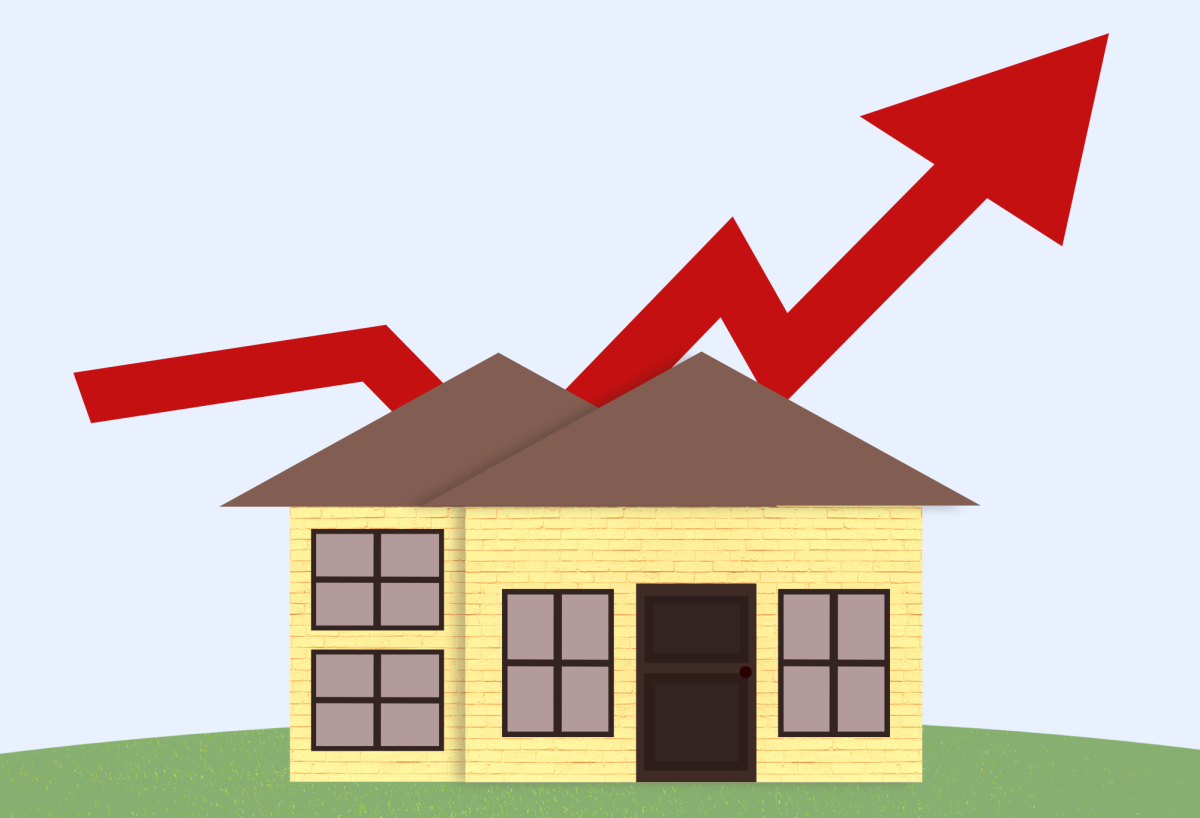I always dreamed of what my future house would look like.
I wanted an old Victorian-style home with the original stairs and woodwork. I wanted a grand dining room to host guests and a round corner breakfast nook where I could work in the mornings.
And to quote Rachel McAdams and her iconic role in The Notebook, “I want a big ‘ole porch that wraps around the entire house.”
However, I now know I’ll never get to see that dream come true.
I, like most of Gen Z, have come to the same understanding that I most likely will never own a home.
A Redfin survey conducted in September found that one in 10 Gen Z respondents did not see themselves owning a home in the future, with most citing affordability as the number one cause.
The housing market has been on a constant roller coaster of price ranges in recent years, and now it looks like the prices are only going to keep climbing.
Housing prices have seen a 48.55% increase in the last 10 years.
Along with the increasing prices of houses, Gen Z is also dealing with other financial hurdles when it comes to potential home ownership.
A 2022 study from FreddieMac identified five such hurdles among respondents.
Saving for a down payment was the most popular issue among 39% of the 1,749 participants.
Not having a sufficient credit history was the next hurdle identified by 27% of respondents, followed by unstable job situations, student loan debt and credit card debt.
The constant financial burdens mixed with the decreasing affordability of homes is destroying the dream of becoming a homeowner — a pillar of the so-called “American Dream.”
Renting, which was once a safe haven for those not quite ready to buy a home, is also becoming a strenuous feat for most of Gen Z.
Since 1999, rent has increased by around 135% with the average income only increasing by 77% in that same amount of time.
To find out exactly how the renting market is affecting Gen Z, The New York Times interviewed several renters.
Savannah Scott, a 23-year-old in Nevada, told the outlet, “I end up buying less groceries — I can’t be buying fun little snacks, it’s just like brown rice and beans. I was on food stamps for a while. I only drive maybe once a week because I don’t want to have to pay for the gas.”
The New York Times also broke down how much of each renter’s income went toward their rent.
Scott uses 75% of her income for rent.
If residents have to adjust their grocery lists to meet the grueling rent, it doesn’t give potential tenants a warm fuzzy feeling when considering signing a lease.
Some people don’t see the housing market as an issue.
Jacob Channel, a senior economist for the online loan marketplace LoaningTree, spoke with The New York Times about the outlook on Gen Z homeowners.
“Even though you might hear a lot of doom and gloom and people might say, ‘Well, Gen Z-ers will never be able to buy a house,’ they said the same thing about millennials, and millennials are the largest group of home buyers in America,” Channel told The New York Times.
While I do appreciate the positive forecast, being a member of the affected generation forces me to be a realist.
The truth is, even if the buying prices of houses were to reach a low point in the near future, I am still not sure how I would pay for the constant maintenance that comes with owning a home.
For now, I’m just going to push my Victorian-style home to the back of my mind and look for affordable alternatives.
Although, a small part of me will still dream of it.
































































































































































Dana • Dec 8, 2023 at 11:25 am
The problem with this story is that it fails to consider an obvious factor: while home prices are increasing everywhere, once you get outside of large urban areas, housing prices become affordable. This is especially true in the Bluegrass State.
We bought, in December of 2021, a two bedroom, one bath home, in decent shape, for $70,000, in Ravenna, Estill County. Yeah, in Lexington, it would have been $200,000, but you don’t have to live in Lexington. If you work in Lexington, you can still commute from Mt Sterling, and be able to buy a house in decent shape, in a safe community, without having to overpay. You just have to decide what lifestyle you can manage.